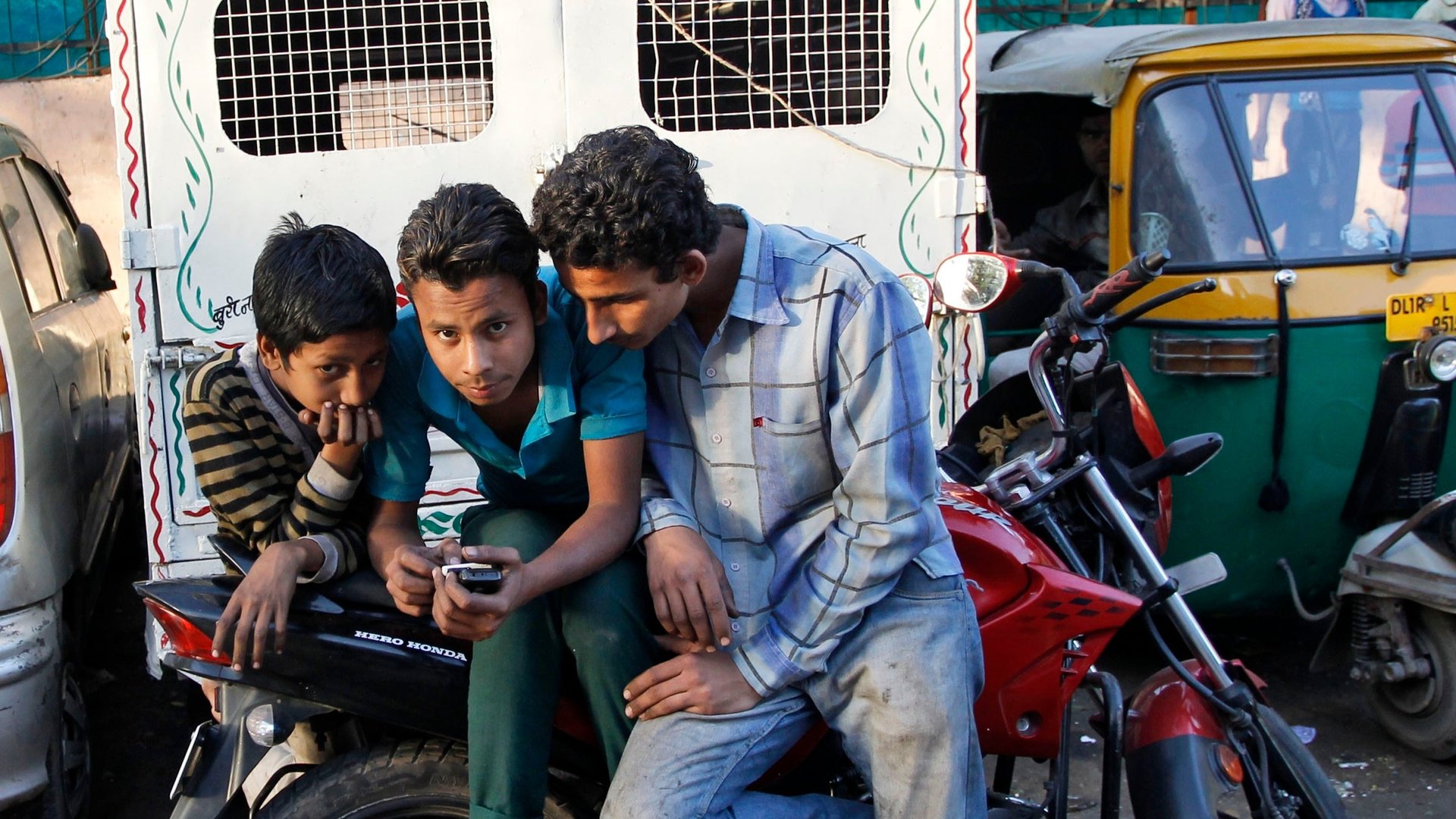If Zuckerberg wants to connect the next billion, his model should be Mumbai
Mark Zuckerberg just elaborated on his plan to create a consortium of tech companies to bring internet access to the billions of poor people on earth who lack it, answering critics who charged that the plan, Internet.org, is just a cynical plot to increase Facebook’s profits. In an interview published by Wired, Zuckerberg called those accusations “crazy,” because the people being targeted have too little money for the program to be anything more than philanthropic. “The billion people who are already on Facebook have way, way more money than the next 6 billion people combined,” he told interviewer Steven Levy.


Mark Zuckerberg just elaborated on his plan to create a consortium of tech companies to bring internet access to the billions of poor people on earth who lack it, answering critics who charged that the plan, Internet.org, is just a cynical plot to increase Facebook’s profits. In an interview published by Wired, Zuckerberg called those accusations “crazy,” because the people being targeted have too little money for the program to be anything more than philanthropic. “The billion people who are already on Facebook have way, way more money than the next 6 billion people combined,” he told interviewer Steven Levy.
Zuckerberg said he wants Internet.org to offer, for free, basic services like text messages and Wikipedia. The trick is, how to accomplish this without simply subsidizing all that connectivity. In other words, he wants the endeavor to work more like a social enterprise than a charity. To that end, Zuckerberg said that, despite the name, he doesn’t want Internet.org to be a non-profit.
Shrinking the web for slow connections
India is a country where you can already pay as little as $2 a month for an unlimited data plan. Granted, that data is delivered by an older, and much slower, technology that pre-dates 3G systems, known as GPRS. But enterprising Indian firms have already found ways to help people manage with those slow speeds, by setting up services that digest and compress websites before delivering them to internet users.
Zuckerberg thinks the effort to shrink the data needed to deliver the mobile web should be taken on by the companies that dominate the internet, such as Google and Facebook. He said he wants the average amount of data required to use Facebook in a developing country—currently 12mb—to shrink to as little as 3% of that amount.
Lessons from Mumbai
Once the web is small enough to be delivered over the limited bandwidth available in emerging markets, there’s still the question of how people will be able to afford their wireless connection. That’s where India’s mobile telecom industry could be a model: One reason prices are so low for slower data services is that initially the government dictated to carriers (pdf) what they could charge for cellular plans in the four major cities of Kolkata, Chennai, Mumbai and New Delhi—to just 156 Rupees, or about $2.50.
That set user expectations, and subsequently the government allowed many different carriers to share spectrum in cities. Today there are at least a dozen competing metro carriers in Mumbai alone, leading to competition so fierce that a whole new category of mobile phones that can connect to one of two different mobile networks, depending on price, have come to dominate the Indian market.
India’s unusual mix of state control and subsequent free market capitalism is something of a historical accident that would be difficult to reproduce elsewhere, but it points to a larger issue that Zuckerberg’s Internet.org effort has yet to address: Governments control the limited supply of spectrum that allows all wireless connectivity, and they auction it off, like real estate, to the highest bidder.
If Zuckerberg truly wants to connect the next billion, Internet.org might have to address the root problem with the pricing of mobile plans in rich countries and many emerging economies other than India: A few players have created oligopolies that have locked down the scarce resource of spectrum.